Being Involved in Sports is the Biggest Power Play Anyone can Make
From an industry built on resilience to a new level of cultural phenomena made to pack out arenas.
If I were to ask you to think of a sporting scene which embodied the essence of an underdog story and made you jump off the couch, put on your shoes and hit the ground running then I’m sure Rocky’s montage of him sprinting up the museum steps in Philadelphia would be one of the first which comes to mind. If you haven’t seen the Rocky movies or at the very least heard of them, then I would argue that you have been living under a rock (…pun intended). To me and many others, there’s something about watching someone continuously get back up after defeat that makes us take a fond likening to them. An attachment where we champion for their success, no matter what. It’s these traits of resilience and determination which sport is built on at its core but after visiting Philadelphia myself and observing people acting out their own Rocky scene even to the extent of buying into anything ‘Rocky’ branded it made me curious about both the cultural phenomenon and the big business which sports has become.
No matter where you are in the world, if you step foot outside it is likely you will be served an influx of street style, sports apparel and team memorabilia donned by both the casual and committed athlete. It’s hard to think there was once a time, not only pre-Rocky but more notably pre-Michael Jordan where wearing clothes designed for the likes of courts and gym floors anywhere outside of these locations was frowned upon. We now live in a world where repping the teams you support and sports events you managed to gain access to serve as a flex of sorts, which is far removed from that of the muscular kind. To me it seems every brand these days is jumping on the sports sponsorship and apparel bandwagon and for good reason too. This is a power play that just makes sense.
A Brief History
Sports sponsorship started off in what can only be called the most ‘off-brand’ manner possible, with cigarette companies partnering with sports stars to boost the name of both the athletes and the product. Formula One as a sport set the precedent, decking their driver’s suits and cars out in sponsors logos, specifically the famous Marlboro red and white, serving as a crucial source of funding.
If you’ve watched Netflix’s ‘The Last Dance’ or the movie ‘Air’ then you will somewhat know the story of Michael Jordan. For those who don’t, in 1984 an underdog running shoe company which you might have heard of, called Nike, signed Michael Jordan for an endorsement deal to attempt to bring their struggling basketball division back to life. This deal grew both Nike and Michael Jordan into two of the most iconic sporting franchises with the Air Jordan sneaker making $100 million in sales in its first year. From here on out wearing sporting attire off the field served as a status symbol for style, with its value extending far beyond functional purpose.
Cultural Perspective
Sports has become a cultural phenomenon in its own right for many reasons…
Increased Credibility and Trust - Partnering with a sports team or athlete gives a brand a degree of credibility, fuelling the hype which is hard to replicate elsewhere. There is something about a company who is aligned with someone who exhibits a high level of discipline and is highly regarded in their field, which makes them easier to trust. Even more so once you understand the sacrifice it takes to make it at the top level.
Creating Accessibility through Communities - When new sports merchandise or a behind the scenes documentary drops, everyone gathers around to support their favourite athletes and show off how proud they are as a fan. Sports has a way of bringing people together, creating a sense of belonging and a way to bond over a common interest. With ESPN experiencing viewership growth of 164% amongst people aged 18-34 last season, sports has now become commonplace in our everyday lives. With increased visibility comes increased accessibility, which to me is a win.
Leveraging Exclusivity - it is an innate part of human nature that we want to get our hands on what others cannot, hence why exclusivity works so well. Limited edition drops and collections either with an athlete or designed specifically for an event become highly sought after. If you do manage to get your hands on these then not only do you feel as though you are part of a rare club, but the items themselves serve as a symbol of status and being in the know.
Why it Matters
Ability to build a personal brand - while it may appear that athletes are making bank, for many this is not actually the case, depending on the level and sport of choice. Brand partnerships and inside looks give athletes the ability to make a name for themselves, developing a legacy that stretches far beyond the time at which they compete. People love to see deep dives on what it takes to be a high performer, I for one eat that content up and am a big advocate of anything that supports building a personal brand that is based on authenticity.
A place to belong - touching on my point earlier and given we are currently facing a loneliness epidemic, sports give people a reason to come together and bond over a common interest. Whether it be from collectively watching a nail-biting game together or queuing to buy limited edition merchandise, there is a sense of comradery which is unparalleled when people of all walks of life come together for the same collective goal.
A New Wave of Sporting Partnerships
Activations in the name of sport have evolved ten fold, with some honourable mentions listed below.
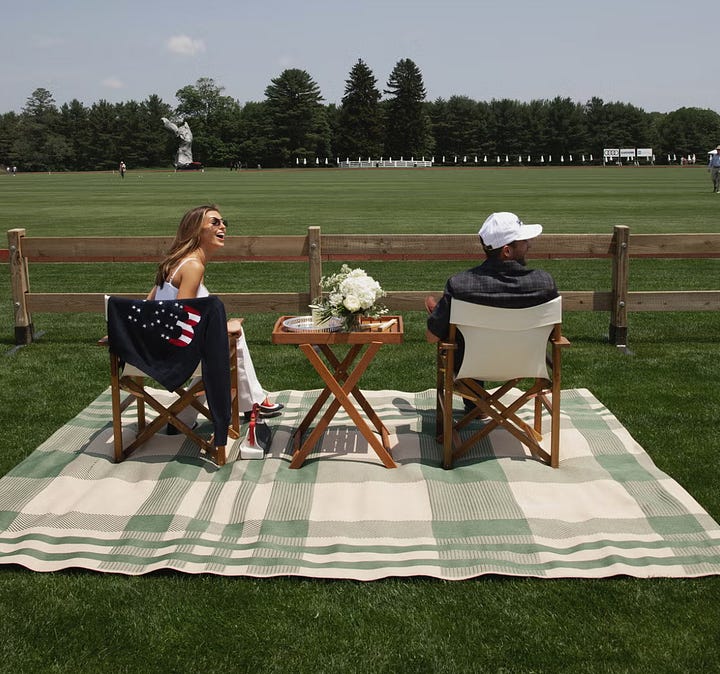

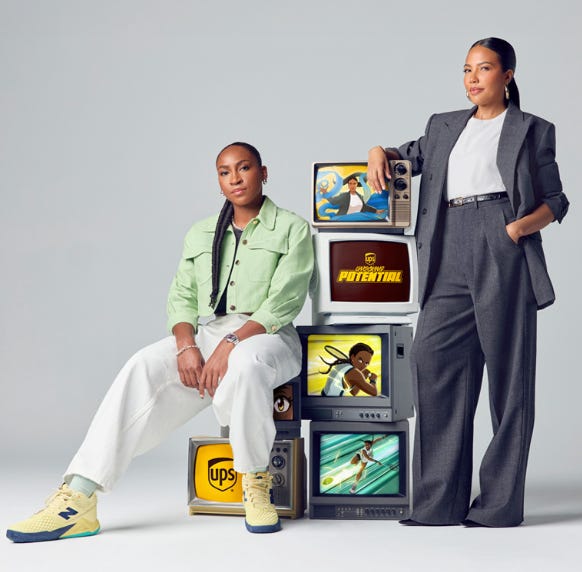
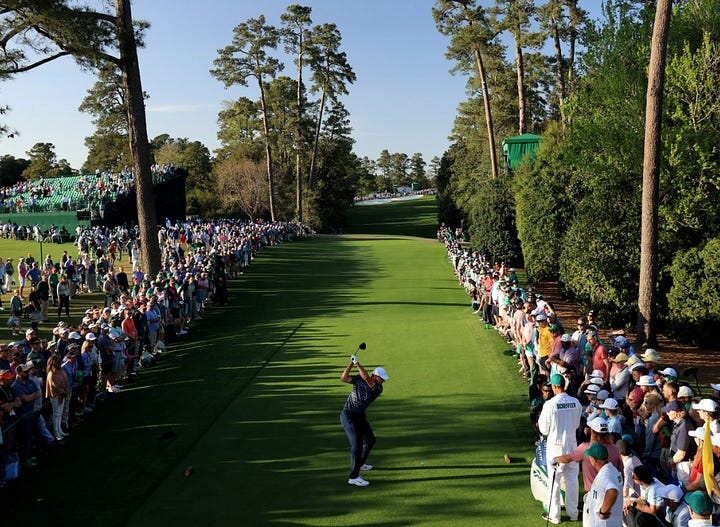
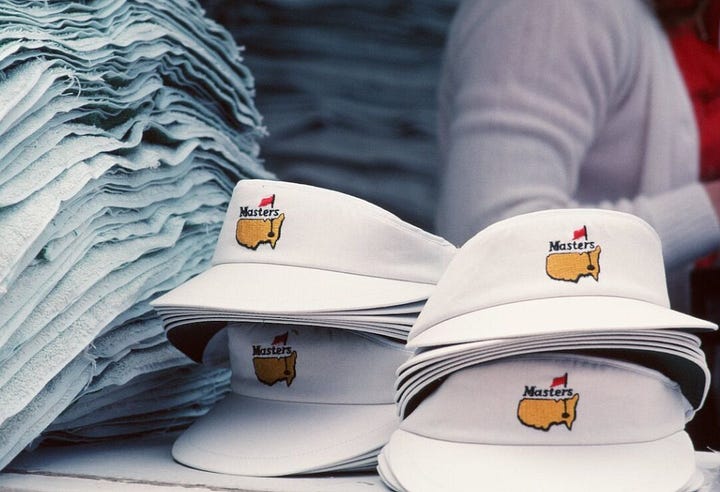
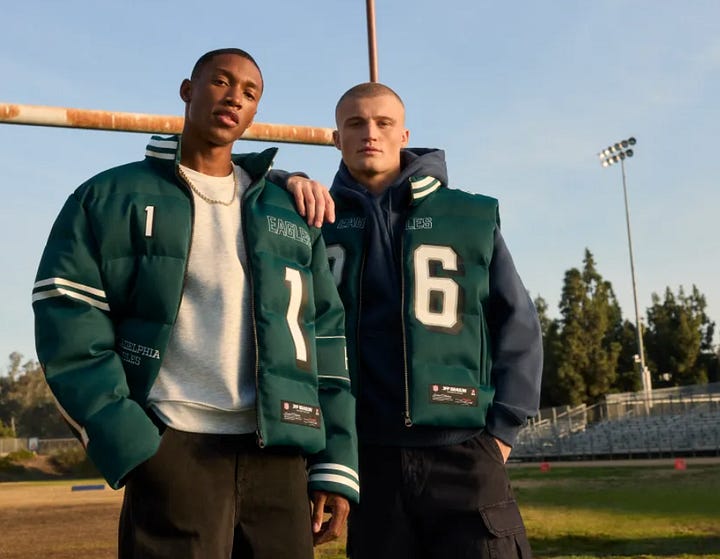
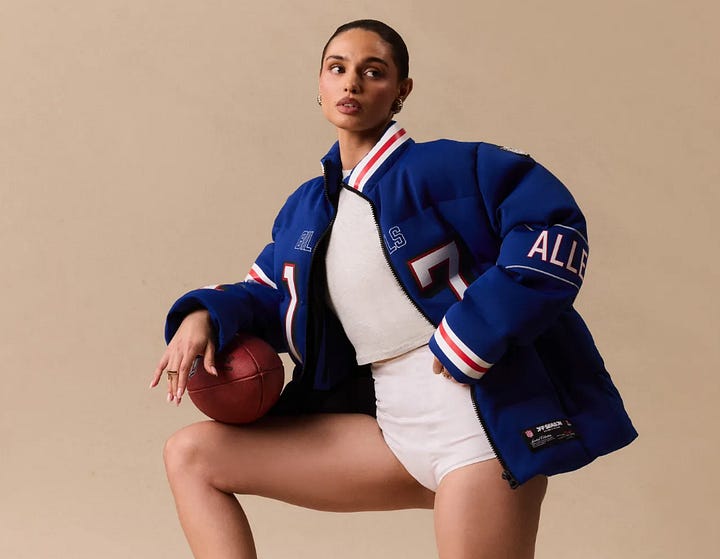
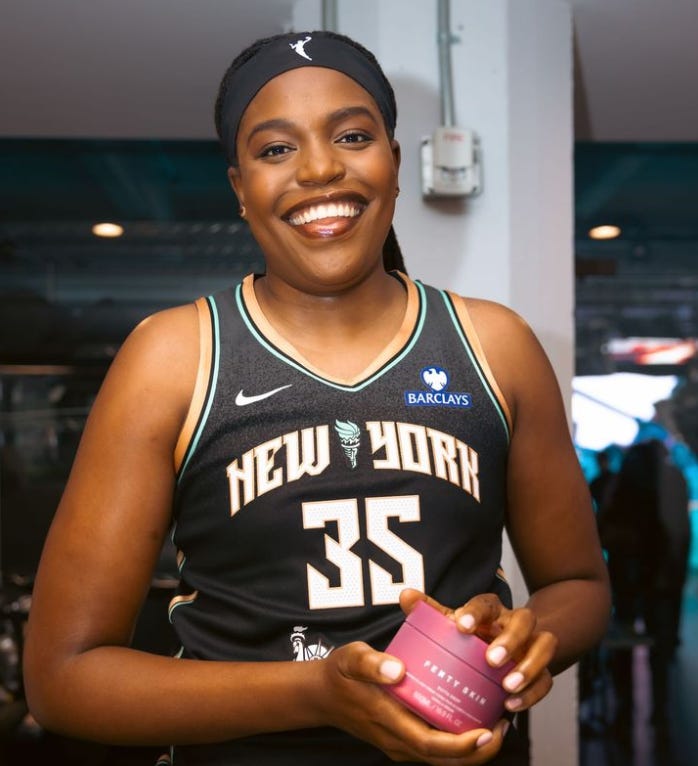
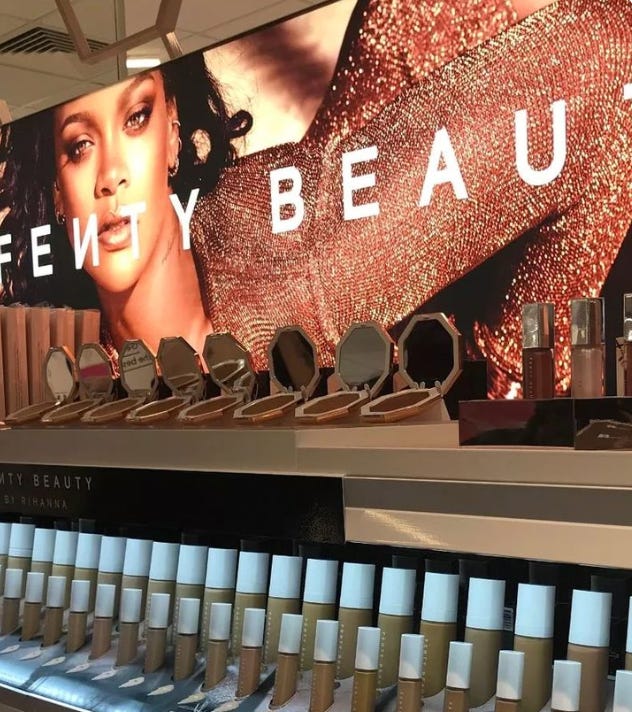
For Your Information
If you would like to delve deeper into this topic, The Glossy Beauty Podcast was joined by Sports Agent Jackie Gemelos to discuss all things beauty deals in the WNBA realm.
The Glossy Beauty Podcast and Sports Agent Jackie Gemelos
Final Thoughts
This move towards a sporting focused culture says all you need to know about us as a society. The starting point is that we are all trying to find a sense of belonging and tap into a way of building a legacy, but beyond that we see a bit of ourselves in athletes as we inherently strive to prove our worth despite all odds. Brands, athletes and casual fans would be forfeiting any leg up by not incorporating sport as a means of capital in their day to day.





